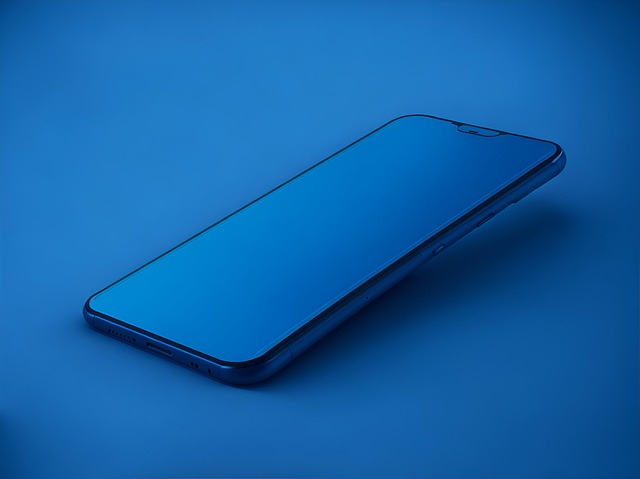Automated dialers, while initially hailed as revolutionary tools for businesses, have sparked privacy concerns due to the surge of unwanted calls. This has led to regulatory actions, such as laws in South Carolina, protecting individuals from excessive communication. Businesses must navigate complex legal complexities surrounding automated dialing, balancing compliance with consumer autonomy. Unwanted call lawyers SC and law firms specialized in this area offer crucial guidance on adhering to regulations like TCPA, ensuring business practices protect consumer rights. Consulting these professionals is essential for navigating the intricate web of laws governing automated dialers in South Carolina.
“Unwanted calls are a modern nuisance, but understanding the technology behind them can empower consumers and businesses alike. In South Carolina, navigating the legality of automated dialers is crucial, especially with evolving regulations. This article delves into the world of automated dialers, exploring their evolution, technical functions, and legal standing under SC law. From ‘The Evolution of Automated Dialers’ to ‘Navigating Compliance’, discover insights for businesses and learn how an unwanted call lawyer in South Carolina can safeguard your rights.”
The Evolution of Automated Dialers: From Innovation to Regulation
The evolution of automated dialers reflects a balance between technological innovation and regulatory oversight. Initially, these systems promised to revolutionize communication by automating and streamlining contact efforts, particularly in customer service and marketing. They enabled businesses to reach vast audiences efficiently, significantly enhancing outreach capabilities. However, as their use surged, so did concerns regarding privacy and consumer rights, especially with the proliferation of unwanted calls.
This shift led to regulatory interventions aimed at protecting individuals from excessive or unsolicited communication. In South Carolina, as in many other jurisdictions, laws have been enacted to address the challenges posed by automated dialers, particularly when used for telemarketing or sales purposes. Understanding this evolution is crucial for businesses and unwanted call lawyers SC alike, as it shapes the legal landscape surrounding automated communication methods, ensuring compliance while respecting consumer autonomy.
How Automated Dialers Function: A Technical Overview
Automated dialers, also known as automated calling systems or robotics dialing, have transformed the way businesses reach out to potential customers and clients. These advanced technologies utilize sophisticated algorithms and computer-generated voices to make phone calls en masse. When initiating a call, an automated dialer generates random numbers from a pre-loaded list of contacts, ensuring high call volume with minimal human intervention.
At the heart of these systems lies a software program that controls the entire process. It sends out a series of automated messages, often with personalized content, to a large number of recipients simultaneously. The technology is designed to efficiently deliver marketing messages or make sales pitches, but it has also raised concerns about privacy and the potential for unwanted calls, leading many people to seek legal advice from unwanted call lawyers SC or unwanted call attorneys SC.
Unwanted Calls and South Carolina Law: Exploring Consumer Protections
In South Carolina, just like in many other states, there are strict laws in place to protect consumers from unwanted calls. The Telemarketing and Consumer Fraud Act (TCFA) is a key piece of legislation that governs telemarketing practices, including those involving automated dialers. This law prohibits the use of prerecorded or artificial voices in telemarketing calls unless certain conditions are met. If a consumer receives an unwanted call from an automated dialer, they have options. Engaging the services of an experienced unwanted call lawyer SC or unwanted call attorney SC can help determine if the caller violated any laws and guide consumers through available remedies.
Consumers in South Carolina also have the right to register their phone numbers on the state’s Do Not Call list, which significantly reduces the volume of unsolicited calls they receive. Additionally, many consumers turn to reputable unwanted call law firms South Carolina or unwanted call lawyers South Carolina for assistance when dealing with persistent or harassing callers. These legal professionals can provide valuable advice and representation to ensure that consumer rights are protected under the TCFA and other relevant laws.
Legal Implications for Businesses Using Automated Dialers in SC
Using automated dialers to make unsolicited or unwanted calls can have significant legal implications in South Carolina. Businesses that engage in such practices may face regulatory actions from the South Carolina Public Service Commission, which oversees telecommunications activities within the state. Additionally, individuals whose privacy is invaded by these automated calls can file complaints with the Federal Communications Commission (FCC) and seek damages through legal action against the responsible businesses or organizations.
Unwanted call lawyer SC, unwanted call attorney SC, unwanted call law firm South Carolina, unwanted call lawyers South Carolina, unwanted call attorneys South Carolina, unwanted call law firms South Carolina, and lawyer for unwanted call South Carolina are terms commonly searched by those facing such issues. Legal experts in this field can advise on compliance with the Telephone Consumer Protection Act (TCPA) and other relevant state laws, ensuring businesses avoid costly penalties and reputational damage associated with unauthorized automated calling.
Navigating Compliance: Best Practices for Businesses and Legal Advice from a SC Unwanted Call Lawyer
Navigating compliance with South Carolina’s regulations on automated dialers can be complex. Businesses utilizing automatic telephone dialing systems (ATDS) should ensure they adhere to state and federal laws, such as the Telephone Consumer Protection Act (TCPA). One of the best practices is to obtain prior express consent from recipients before making automated calls. This involves clear and unambiguous language during initial interactions, ensuring individuals understand they are agreeing to receive automated calls.
If you’ve been contacted by an unwanted call lawyer SC or have received unsolicited calls, consulting with a reputable unwanted call attorney SC or a South Carolina unwanted call law firm is advisable. Legal experts in this field can provide guidance tailored to your situation and help ensure compliance with the unwanted call laws of South Carolina. They can offer insights on crafting effective consent forms, managing call lists, and mitigating potential legal risks associated with automated dialing practices.






